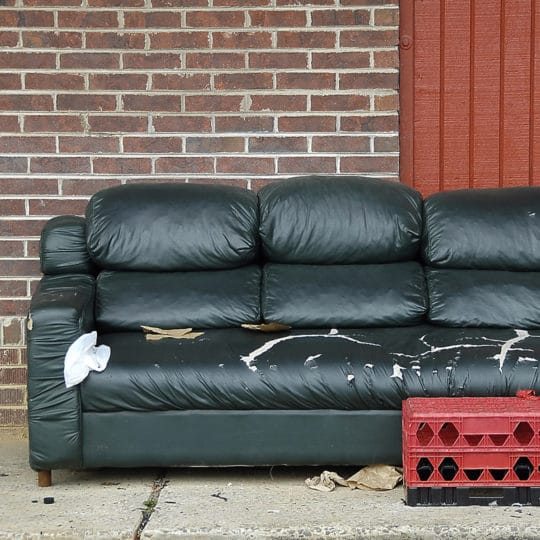Estate Cleanout for Different Property Types
Handling an estate cleanout is often an overwhelming and emotional task, especially when it involves sorting through years of accumulated belongings and memories. Whether it’s due to the passing of a loved one, downsizing, or preparing a property for sale, estate cleanouts are a critical part of managing transitions in property ownership. Given the various types of properties, each estate cleanout comes with its own unique set of challenges and considerations. This article explores the intricacies of estate cleanouts for different property types and provides insights into making the process as smooth and efficient as possible.
Understanding Estate Cleanout
What is Estate Cleanout?
Estate cleanout involves the comprehensive process of removing personal belongings, furniture, and other items from a property. This task is typically undertaken when a property is being sold, rented, or otherwise repurposed after a major life event, such as the death of a loved one, downsizing, relocation, or foreclosure.
Reasons for an Estate Cleanout
There are several common reasons why an estate cleanout may be necessary:
- Death of a Loved One: The most common reason for an estate cleanout is when a property owner passes away, leaving behind belongings that must be sorted and removed.
- Downsizing: As people age, they may choose to move into smaller homes, retirement communities, or assisted living facilities, necessitating the cleanout of their previous residence.
- Relocation: A move to a different city or country often requires a cleanout, especially if the move is permanent.
- Foreclosure or Eviction: When properties are repossessed or tenants are evicted, an estate cleanout is needed to clear the premises for new occupants.
Who Needs Estate Cleanout Services?
Estate cleanout services are invaluable for individuals and families dealing with the above situations, as well as for real estate agents, property managers, and legal professionals who need to prepare properties for sale or lease.
Types of Properties for Estate Cleanout
Estate cleanout is not a one-size-fits-all service; the approach varies significantly depending on the type of property involved.
Residential Properties
- Single-Family Homes: These cleanouts often involve the most personal items and can be emotionally taxing. The size of the property and the amount of accumulated belongings can make this a time-consuming process.
- Apartments and Condominiums: These tend to have less space and, therefore, fewer belongings, but the challenges often lie in the logistics of moving items through shared spaces like hallways and elevators.
- Townhouses: Similar to single-family homes but may include shared walls or communal areas that require special consideration during the cleanout.
Commercial Properties
- Office Buildings: Office cleanouts can be complex due to the presence of large amounts of furniture, electronics, and confidential documents that need to be securely disposed of.
- Retail Spaces: These cleanouts often involve disposing of unsold inventory, fixtures, and equipment, and may require coordination with multiple stakeholders.
Specialty Properties
- Farms and Rural Properties: Cleanouts here can be particularly challenging due to the presence of large equipment, livestock, and extensive outdoor areas that may need clearing.
- Industrial Properties: These often involve hazardous materials and require compliance with strict environmental regulations.
- Historic Properties: Preservation concerns can make these cleanouts tricky, as there may be restrictions on what can be removed or altered.
Steps to a Successful Estate Cleanout
Initial Assessment and Planning
The first step in any estate cleanout is a thorough assessment of the property and its contents. This allows for proper planning and resource allocation.
Sorting and Categorizing Items
Items should be sorted into categories: keep, donate, sell, and dispose. This helps streamline the process and ensures that nothing of value is overlooked.
Disposal, Donation, and Recycling Options
A significant portion of the items in an estate cleanout can be donated or recycled. Working with local charities and recycling centers can reduce waste and benefit the community.
Final Cleanup and Preparation for Sale or Lease
Once all items have been removed, a final cleanup is necessary to prepare the property for sale or lease. This may include deep cleaning, minor repairs, and landscaping.
The Role of Professional Estate Cleanout Services
Benefits of Hiring Professionals
Professional estate cleanout services bring experience, efficiency, and resources that can significantly ease the burden of a cleanout. They handle the logistics, heavy lifting, and disposal, allowing you to focus on other important matters.
What to Look for in an Estate Cleanout Company
When choosing a cleanout service, consider factors like experience, reputation, services offered, and pricing. It’s also important to ensure they are licensed and insured.
Cost Considerations
The cost of estate cleanout services varies depending on the size of the property, the volume of items, and the specific services required. Get quotes from multiple providers to ensure you receive a fair price.
Tips for a Stress-Free Estate Cleanout
Start Early and Plan Ahead
Begin the cleanout process as soon as possible to avoid last-minute stress. Planning ahead helps you manage time and resources effectively.
Seek Help When Needed
Don’t hesitate to ask for help from family, friends, or professionals. Cleanouts can be overwhelming, and having support makes a big difference.
Stay Organized Throughout the Process
Keep track of what has been done and what still needs attention. Staying organized will help you stay on schedule and reduce stress.
Conclusion
Estate cleanouts can be daunting, but with proper planning, the right approach, and professional help when needed, the process can be much smoother. Understanding the unique challenges of different property types and preparing accordingly is key to a successful cleanout. Whether you’re dealing with a residential, commercial, or specialty property, remember that you don’t have to go through it alone—there are resources and professionals available to help every step of the way.

